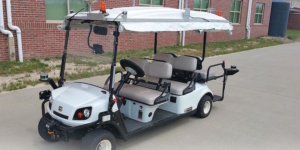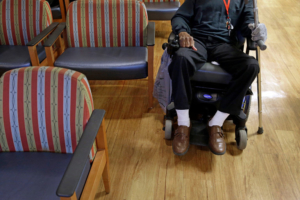Interview Do’s & Don’ts, and the Questions You Should/Should Not Answer

By Debbie Gregory.
If you’re searching for a veteran job after military service, you may be out of practice when it comes to the job interviewing process. Here are some important tips.
Do’s:
Prepare: Research the people interviewing you, the company, and the job itself. Know what does the company does, the requirements for the job, and how your experience matches those requirements.
Engage: Remember that you are, first and foremost, having a conversation. It’s nerve-wracking and highly formalized, but avoid stock responses. Preparation is a foundation, not a set-in-stone strategy.
Ask the right questions: Don’t be afraid to ask questions, but make sure they are the right questions. For example: Who do you think would be the ideal candidate for this position, and how do I compare? Do you have any hesitations about my qualifications? What are the challenges of this position? What do you like most about working for this company?
Close on a positive: Towards the close of the interview, look the interviewer in the eye and say, “I can do this job, and do it well. I am the type of person who puts 100% effort and energy into my work. What are the next steps?
Do not flinch and wait for an answer. No one likes rejection and they want a candidate who will accept the offer and not reject it. This might be the most important part of the interview.
Don’ts:
Be late: This rule is ironclad. No excuses, no exceptions. Showing up late shows disregard for your potential employer’s time, and insinuates your inability to plan.
Say negative things about your current or past employers or managers: No matter how grounded your complaints are, negative comments will be viewed as disrespectful. When faced with the challenge of talking about former employers, make sure you are prepared with a positive spin on your experiences.
Be Desperate: Never let on that you’re applying just because you need a job. It’s in the best interests of the employer to hire a passionate employee rather than someone who is simply filling a slot.
Show lapses in your professional veneer: The interview begins as soon as you receive notice that they want to interview you. Party pictures on social media? Not a great idea. As soon as you enter the building, make sure you treat everyone with respect and courtesy. Don’t let your professional veneer slip for a moment.
Talk too much: Don’t take too long to answer direct questions. It gives the impression that you can’t get to the point. An even though you’re nervous, try not to over-talk.
Ask the wrong questions: Examples of this would be: How much does the job pay? What are the benefits? What can you tell me about your company? (You should have already done your homework.) How long will it take to get a promotion? Are you flexible on the schedule? Can I work from home?
Give away too much information: Don’t weaken future earning potential by speaking too freely about current income. No matter the official salary range of the position you are interviewing for, your current earnings have an enormous effect on the size of the offer.
You already know your resume set you apart as a candidate of choice to be invited for an interview. Hone your interviewing skills to actually win job offers. Polishing your interviewing skills can mean the difference between getting the job and being a runner-up.
Military Connection salutes and proudly serves veterans and service members in the Army, Navy, Air Force, Marines, Coast Guard, Guard and Reserve, and their families.


























